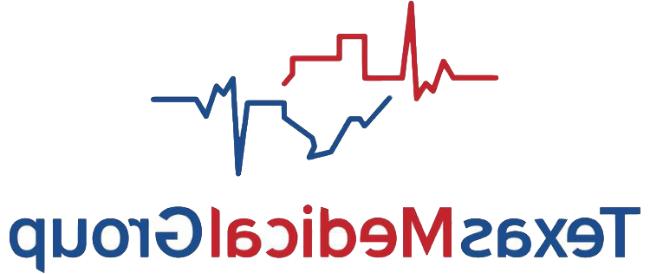
美国劳工部新独立承包商规则的商业含义
1月. 2024年9月9日,美国.S. 美国劳工部(痛单位)发布了一份 最后的规则, 3月11日生效, 2024, revising the agency’s guidance on how to analyze who is an employee or independent contractor under the Fair Labor Standards Act (FLSA). 这一最终规定废除了1月6日公布的现行独立承包商规定. 7, 2021. 如果这个规则生效, it may result in classifying a greater number of workers as employees—not independent contractors. 这一变化意义重大, 尤其是在零工经济时代, 因为它将在FLSA下提供更多的个人权利和保护.
It’s critical that employers understand the new rule and its potential impacts on their businesses as the final independent contractor rule could significantly affect employers’ operational and compliance costs as well as increase their litigation risks. Although the 最后的规则 will not impose any new requirements on employers until it becomes effective, employers should familiarize themselves with the rule and evaluate what changes they may need to implement.
This article provides an overview of the 痛单位’s new independent contractor rule and outlines how this rule may impact businesses. 由于这项新规则可能对组织产生重大影响, 雇主应该咨询他们的法律顾问,以解决任何具体的问题或担忧.
美国劳工部新独立承包商规则概述
根据劳工保障法,雇员有权获得最低工资、加班费和其他福利. 独立承包商无权享受这些保护和福利. Misclassifying workers as independent contractors can have serious financial and legal consequences for employers, 包括昂贵的诉讼, 罚款和律师费.
The 最后的规则 rescinds the 2021 Independent Contractor Rule and returns to the pre-2021 rule precedent. 这样做的时候, 最后一条规则恢复了多因素, totality-of-the-circumstances analysis to assess whether a worker is an employee or an independent contractor under the FLSA. The 最后的规则 ensures that all economic realities test (ERT) factors are analyzed equally without assigning a predetermined weight to a particular factor or set of factors. 这六个因素包括:
- 盈利或亏损的机会取决于管理技巧
- 工人和潜在雇主的投资
- 工作关系的持久程度
- 控制的性质和程度
- 工作的完成程度是潜在雇主业务的一个组成部分
- 工人的技能和主动性
除了关注六个ERT因素, the new rule allows additional factors to be considered if they are relevant to the overall question of economic dependence. 根据美国劳工部, this 最后的规则 will reduce the risk of employees being misclassified as independent contractors while providing a consistent approach for businesses that engage with individuals who are in business for themselves.
美国劳工部新的独立承包商规则很可能会在法庭上受到质疑. 这可能会推迟最终规则的实施. There’s currently a lawsuit pending over the Biden administration’s attempt to withdraw the 2021 Independent Contractor Rule in May 2021. 在这种情况下, a federal court concluded that the Biden administration violated federal law in rescinding the regulation and reinstated the 2021 rule. 在劳工部准备新规则期间,这起诉讼被推迟了几个月. 由于该机构公布了最终规定,此案现在可能会重启.
新规定对雇主的潜在影响
The 2021 Independent Contractor Rule made it easier for employers to classify workers as independent contractors under the FLSA. This rule focused on two core factors: the nature and degree of the worker’s control over the work and the worker’s opportunity for profit and loss based on initiative and/or investment. These factors carried more weight in determining the status of independent contractors than the three other ERT factors (the amount of skill required for the work, the degree of permanence of the working relationship and whether the work is part of an integrated unit of production). 然而, the 痛单位’s new rule will likely make it more difficult for employers to classify workers as independent contractors by reinstating the complex multifactor and totality-of-the-circumstances analysis, 哪一种通常被认为对员工更友好. 因此,新规定可能会导致更多的员工被归类为员工.
The 痛单位’s 最后的规则 will likely significantly increase the risk of employee misclassification for employers. 因此, 雇主可能面临更大的责任风险, 如集体诉讼或行政诉讼, 因为没有向工人提供flsa要求的福利和保护. This will likely impact small businesses more than larger organizations because they generally do not have the resources or necessary staffing to address complex compliance issues, 例如FLSA下的雇员分类.
Classifying more workers as employees under the FLSA will likely have major implications for the gig economy. 零工(e).g.(送货司机)通常被归类为独立承包商. 如果这些工人在劳工部的新规定下被重新分类为雇员, 依赖这些工人的行业, 比如建筑, 交通及传媒, 会比其他人受到更大的影响吗. 这可能导致企业不太可能雇佣或依赖零工工人.
准备痛单位的新规则
Although the 痛单位’s 最后的规则 does not impose any new requirements on employers until it becomes effective, employers should become familiar with the 最后的规则 and evaluate what changes they may need to adopt if the rule becomes effective. Employers can prepare for the 痛单位’s new independent contractor rule by ensuring that they comply with all employee classification requirements under the FLSA. 这对于依赖独立承包商的组织尤其重要. 虽然最终规则规定了与2021年规则不同的标准, 大多数雇主可能已经熟悉了这项新规定, 因为它反映了2021年规则之前存在的早期标准.
Employers can better ensure compliance with the 痛单位’s 最后的规则 by taking the following actions:
- 审核与零工的现有工作关系, 自由职业者, 独立承包商和雇员.
- 根据最终规定,确定是否有任何工人的分类必须改变.
- 审查与零工签订的任何协议, 自由职业者, 确保独立承包商和雇员遵守最终规定.
- 更新就业政策和程序,使之与劳工部的最终规定保持一致.
- 对管理人员进行FLSA工人分类要求的培训.
而痛单位的最终规则只适用于FLSA, 许多州都有自己的规定来确定工人的分类. 避免潜在的违规和处罚, 雇主需要熟悉所有适用于他们组织的法律. Employers are encouraged to seek legal counsel to discuss specific issues and concerns related to employee classification requirements.
Summary
如果美国劳工部的最终规定生效,它将对大多数雇主产生重大影响. Savvy employers will take the time to revisit their worker classifications and understand the 最后的规则’s potential impact on their organizations. 通过采取积极主动的方法和重新评估工人分类, employers can help ensure they meet any compliance requirements and mitigate any potential legal risks.
This 人力资源的见解 is not intended to be exhaustive nor should any discussion or opinions be construed as professional advice. ©2024 Zywave, Inc. 版权所有.

讨论
目前还没有评论.